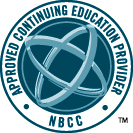
Innovations in Counseling

Soul Cry: The Lived Experience of Moral Injury Among Black Male Police Officers in the Context of Undue Police Violence Against Black Citizens
This webinar examines the impactful dissertation study Soul Cry: The Lived Experience of Moral Injury Among Black Male Police Officers in the Context of Undue Police Violence Against Black Citizens, led by Dr. Avery Rosser. Through his qualitative research, Dr. Rosser has investigated the complex psychological and emotional struggles faced by Black male police officers who either witness or participate in violence against Black citizens. The session will highlight the experiences of moral injury and deep psychological distress that arise when one’s moral or ethical beliefs are compromised in high-pressure situations. The webinar aims to deepen understanding, encourage dialogue, and explore strategies for support and healing within law enforcement communities.
After this presentation, participants will be able to:
- gain an in-depth understanding of the factors contributing to moral injury among Black male police officers, including the personal and systemic challenges that exacerbate these experiences.
- evaluate firsthand accounts from Black male officers, providing participants with a personal perspective on the emotional and psychological impact of undue violence against Black citizens.
- discuss intervention strategies and educational practices that can be implemented by counselors and educators to support officers dealing with moral injury.
Presenters
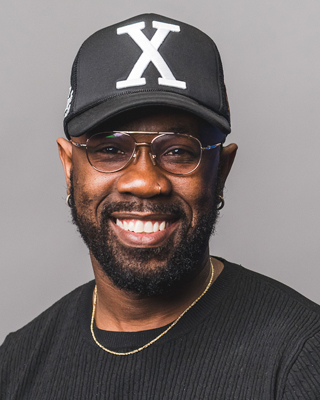
Avery Rosser, PhD, NCC, ACS, LPC, CPCS
Dr. Avery Rosser is a National Certified Counselor, Licensed Professional Counselor, Approved Clinical Supervisor, and Certified Professional Counselor Supervisor with extensive experience in the field. He earned a master’s degree in community counseling from Columbus State University and a PhD in counseling education and supervision from the University of Georgia. Dr. Rosser’s commitment to professional growth is demonstrated by his recognition as an NBCC Minority Doctoral Fellow, reflecting his dedication to advancing his education, skills, and community advocacy.
Racial Macroaggressions, Racial Battle Fatigue, and Racism-Related Stress in Counseling
Counselors of color regularly experience macroaggressions, racial battle fatigue, and attacks on their marginalized identities. They carry these experiences through their training, sessions with clients, and careers as licensed professionals. Participants of this session will learn how racism-related stress and subsequent response impact counselors of color and cross over into their lives outside the workplace. The impact of these experiences on counselors and their families can be determinantal, leading to pushout and burnout. It may also cause families to urge counselors to leave the profession. This is a meaningful conversation, as there continues to be an increasing emphasis on recruiting and retaining counselors of color.
After this presentation, participants will be able to:
- develop a clear understanding of how macroaggressions, racial battle fatigue, and attacks on the identities of counselors of color may impact them and their support systems.
- outline ways that counselors of color can navigate attacks on their identities from their colleagues and clients.
- identify skills that help counselors of color navigate these experiences and make decisions that help improve their lives.
Presenters
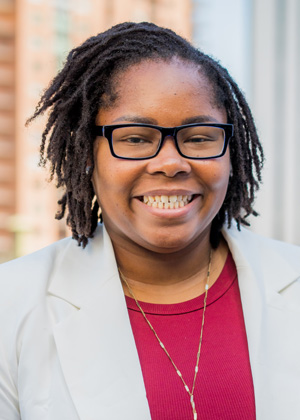
Dèsa Karye Daniel, PhD, NCC, LMHC
Dr. Dèsa Karye Daniel is an Assistant Professor at the University of Colorado Denver. She is a Licensed Mental Health Counselor in New Mexico and Colorado. Dr. Daniel’s research interest focuses on supervision relationships for racial/ethnic minorities, the lived experiences of racial/ethnic college students, and the experiences of Black/African American Womxn in academic spaces. Dr. Daniel advocates for inclusive spaces for racial/ethnic minority students within academia and organizations to increase graduate student resources. She received her doctoral degree in counselor education at the University of New Mexico. Dr. Daniel holds dual master’s degrees in clinical mental health counseling and higher education administration from New Mexico State University. Dr. Daniel was named a 2021 New Mexico Office of African American Affairs Everyday Hero for her mental health work with Black communities. She is also a recipient of a 2020 NBCC Minority Fellowship.

Asia Lyons, EdD
Dr. Asia Lyons is the founder and Lead Consultant for Lyons Educational Consulting LLC, a consulting and coaching firm that supports schools and nonprofits through equity auditing of their programming, co-creation of culturally responsive programming and curriculum, and job-embedded coaching. Before founding Lyons Educational Consulting, Dr. Lyons worked as a K–12 educator for over 10 years. She also served as the equity in schools specialist in a Denver, Colorado-based nonprofit. She worked with schools and nonprofit partners across the Denver metro area to provide communities with resources to support closing the access gap for BIPOC youth. In addition to her work in coaching and consulting, Dr. Lyons is a graduate instructor in the School of Education and Human Development at the University of Colorado Denver. She has a doctorate in leadership for educational equity; her research focuses on how racial battle fatigue crosses over from Black educators to their families. Finally, Dr. Lyons is the cohost of The Exit Interview: A Podcast for Black Educators. The podcast hopes to inform school district administrators, teachers’ unions, families, educators, and others interested in better understanding the challenges of retaining Black people in education.
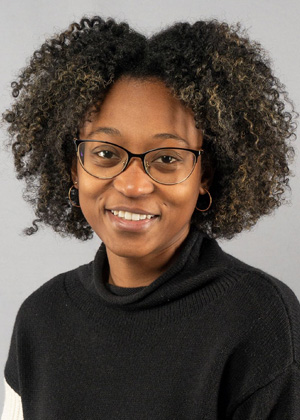
Diandra A. Walker, MS
Diandra A. Walker is a second-year master’s student in the counseling program, clinical mental health track, at the University of Colorado Denver. She works in the athletic department at the University of Colorado Boulder as a Diversity, Equity, and Inclusion Coordinator. In this role, she organizes educational and community-building programming for student-athletes, coaches, and staff; established a mentorship program for student-athletes of color; and collaborates with other departments to advance diversity and inclusion initiatives. Outside school and work, Diandra works with local high school sports teams as a mental performance coach, teaching young athletes how to develop their mental game through weekly workshops. Her professional interests include working with collegiate athletes on mental health and mental performance while also working with student-athletes of color on their transition and finding community. In May 2021, she completed a master’s degree in kinesiology at the University of Tennessee, Knoxville, with a concentration in sport psychology and motor behavior. While at the University of Tennessee, she was a graduate research assistant in the Office of Multicultural Student Life. Her responsibilities included co-advising two student groups, co-teaching an upper-level psychology course, and creating a mental health initiative for students of color.
Radical Self-Care and Peace: Strategies for Folx Bridging the Gap
This session will provide practical and powerful strategies to help you achieve internal peace through effective self-care practices. Understanding the importance of setting boundaries is crucial for protecting your mental health and well-being. This can also ensure that you can provide the best care for your clients while also taking care of yourself.
During this webinar, attendees will learn techniques for creating and enforcing boundaries that support a healthy work and personal life balance. Additionally, we will delve into developing an evolving self-care routine with reflection. Attendees will also discover ways to incorporate regular self-reflection into their routine, allowing counselors to adapt to changing needs and stressors. Finally, we will explore the importance of embracing fun and openness to discomfort in personal growth and self-care.
After this presentation, participants will be able to:
- identify and implement boundaries; define what healthy boundaries look like in their professional and personal lives and apply strategies to establish and maintain these boundaries effectively.
- create a personalized, reflective self-care plan; develop a self-care routine that includes regular reflection, allowing for adjustments and improvements to meet evolving needs.
- integrate joy and manage discomfort: incorporate activities that bring joy and foster a positive mindset while preparing to handle and grow from uncomfortable situations, focusing on inner peace.
Presenters

Jasmaine Ataga, PhD, NCC, ACS, LPC, RPT-S
Dr. Jasmaine Ataga is a core faculty member for an online clinical mental health graduate program. Dr. Ataga is an NBCC 2020 MFP-Doctoral Fellow and a 2016 MFP-Y Fellow. She is also a Licensed Professional Counselor (LPC) in Georgia, a Registered Play Therapist-Supervisor (RPT-S), an Approved Clinical Supervisor (ACS), and a National Certified Counselor (NCC). She has over 7 years in counseling and 9 years in crisis and trauma care. Her clinical specialty area is centered on sexual trauma work and utilizing expressive arts to promote meaning-making. Dr. Ataga is also the founder of Zen360, LLC, a small organization that creates and facilitates expressive arts trainings and international outreach trips for counseling students, clinicians, and educators. As an expressive trauma specialist, she has created sand-tray interventions, art-based techniques, and expressive-based workshops for counselors and clients. Dr. Ataga's primary goal as an educator is to help counselors-in-training learn expressive healing, gain deeper awareness, and implement a routine centered on self-care and peace.
Cultivating Awareness: Exploring Multicultural Perspectives in Psychedelic-Assisted Therapy
This webinar will explore the emerging landscape of psychedelic-assisted therapy within the realm of counseling. Participants will learn about the historical contexts, contemporary research, and evolving legal frameworks within psychedelic-assisted therapeutic approaches. Participants will also gain a comprehensive understanding of the applications of psychedelics in therapy and their potential impact on mental health and well-being. In addition, the session will navigate ethical considerations and multicultural dimensions including the colonization and westernization of indigenous practices. Attendees will gain a nuanced perspective on the evolving role of psychedelics in mental health care and treatment. Whether you’re a counselor, mental health professional, or researcher, please join us for an engaging exploration of the current state and future possibilities of psychedelic-assisted therapy. This webinar aims to foster a thoughtful dialogue and provide valuable insights for those interested in the intersection of psychedelic science and counseling.
After this presentation, participants will be able to:
- understand and explore the cultural and historical background of psychedelic-assisted therapy, its stigma, and its resurgence in contemporary research and practice.
- gain insights into the legal and ethical frameworks shaping the landscape and the current status of psychedelic-assisted therapy in mental health treatment and its impacts on diverse communities.
- explore ethical and multicultural considerations surrounding the integration of psychedelics into counseling practices by examining the multicultural dimensions, addressing issues such as cultural appropriation, spirituality, and ensuring sensitivity to diverse perspectives in the therapeutic use of psychedelics.
Presenter

Brittany Prioleau, PhD, NCC, ACS, LPC, CIMHP
Dr. Brittany L. Prioleau is an Assistant Professor of Counseling at Mercer University in Atlanta, Georgia. She is also the owner of a private practice, Cultivate & Bloom Wellness, LLC. She is currently a Licensed Mental Health Counselor in Georgia, an Approved Clinical Supervisor, a National Certified Counselor, and a Certified Integrative Mental Health Professional. She has over a decade of experience and is committed to serving historically underserved populations by promoting mental health initiatives through an integrative holistic wellness approach. Dr. Prioleau has clinical experience working with various ages and populations. She also has experience as a K–12 bilingual school counselor in urban settings. She is the Director of the Multicultural Wellness Enhancement Research Lab. Her current research focuses on complementary therapeutic approaches, race-related stress effects on wellness, trauma-informed wellness approaches in urban school settings, and multicultural approaches to wellness in counseling. She also has specialized experience in psychedelic-assisted therapy. She fosters research and training to prepare students, schools, and communities with knowledge and tools to better serve historically marginalized populations.
Understanding the Embodied Experience and Recovery Strategies for Survivors of Intimate Partner Violence
National statistics indicate that, on average, approximately 20 people per minute are physically abused by an intimate partner in the United States, equating to more than 10 million women and men. The Centers for Disease Control and Prevention has also emphasized that intimate partner violence (IPV) is a significant public health issue with the potential to have a lifelong impact on an individual’s health and well-being. Furthermore, though violence impacts all, some communities may experience inequities in risk for violence due to certain sociocultural or other institutional or structural circumstances.
This webinar is designed to increase participants’ understanding of the dynamics of IPV when working with victims and/or survivors of abuse with special attention on the embodied experience and strategies for long-term healing and growth. The presenters will provide historical and original research support for the evidence of IPV among the general population and also highlight the unique experiences of marginalized and underrepresented communities impacted by IPV. Finally, the presenters will review key intervention strategies for working with IPV survivors in a clinical setting as clients move toward recovery and journey towards long-term wellness.
After this presentation, participants will be able to:
- increase knowledge of how IPV is defined and its prevalence, including the dynamics of power and control present in abusive relationships.
- increase awareness of IPV present in the general population and unique considerations for marginalized communities.
- integrate clinical interventions in working with IPV survivors, including interventions focused on somatic experiencing and long-term growth.
Presenter

Joy Kelly Phifer, PhD, NCC, ACS, LCMHC, EFT, CCTP
Dr. Joy Kelly Phifer holds a Doctor of Philosophy (PhD) in counseling and counselor education from the University of North Carolina at Greensboro (UNCG). Her previous degrees include a Master of Science and Specialist in Education dual degree in couple and family counseling, a Bachelor of Science in business administration, and a Bachelor of Arts in dance studies, all from UNCG. Currently, she serves as a National Certified Counselor (NCC) and a Licensed Clinical Mental Health Counselor (LCMHC) in North Carolina, treating individuals, couples, and families in an outpatient, private agency setting. Clinically, she maintains special training in Emotionally Focused Couples Therapy (EFCT) through the Carolina Center for EFT and trauma-specific training as a Certified Clinical Trauma Professional (CCTP) through the International Association of Trauma Professionals and holds the Approved Clinical Supervisor (ACS) facilitated through the National Board for Certified Counselors. Currently, she serves as a full-time Assistant Professor on the Core Faculty at Concordia University Irvine in the Townsend Institute for Leadership and Counseling and practices as an outpatient counselor with Family Solutions, PLLC in Greensboro, North Carolina. She also serves as an Adjunct Instructor and Clinical Supervisor in the Department of Counseling and Educational Development at the University of North Carolina at Greensboro and serves as a fellowship mentor with the NBCC Foundation.
As a counselor educator, Dr. Phifer maintains a special passion for the classroom in providing experiential and transformative experiences for her students, where she enjoys teaching classes in counseling skills, career counseling, sexuality counseling, family violence, and more. Also, Dr. Phifer holds a strong passion for the clinical supervision process in helping developing counselors hone their clinical skills, focusing on providing high-quality therapeutic services for clients. Her areas of research interest primarily relate to the prevention, treatment, and recovery experiences of victims and survivors of intimate partner violence (IPV), alongside research implications in couple and family counseling practice—all of which reflect her spiritual calling to the field.
Dr. Phifer is passionate about the performing arts where she enjoys social dancing with her husband and attending live concerts. In her free time, Dr. Phifer enjoys traveling; watching movies full of suspense and drama; and spending time with her husband, James, and new daughter, Ahviana.
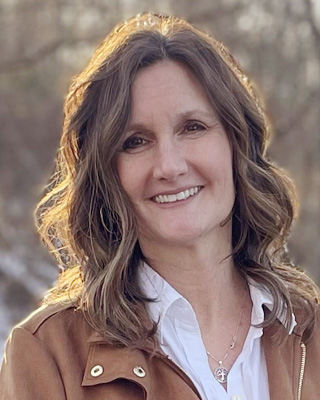
Shelley Coleman, PhD, NCC, ALPS
Dr. Shelley Coleman is a Licensed Professional Counselor in West Virginia and holds specialty certifications in Emotionally Focused Therapy and Somatic Experiencing. She is an assistant professor for the Townsend Institute at Concordia University in Irvine, California. Dr. Coleman has been teaching at the Townsend Institute since 2017. She has taught most of the courses in the program and is the SME for Foundations in Marriage and Family Counseling and Human Growth and Development. Dr. Coleman was introduced to Dr. Townsend’s model in 2011 during a yearlong training for counselors with Dr. Townsend in Indiana. She continues to integrate the Townsend Model into her work clinically as well as in the classroom.
As an Emotionally Focused Therapist and Supervisor, Dr. Coleman provides couples and family counseling using Dr. Sue Johnson’s model of EFT and EFFT. This is widely considered the gold standard for couple and family counseling. As a Somatic Experiencing Practitioner, she uses the work of Dr. Peter Levine for trauma healing work. Again, Dr. Levine’s work is considered a gold standard modality and works with the central nervous system to help the body renegotiate trauma and provide long-lasting healing.
Dr. Coleman owns her own private practice, Valley Counseling and Consulting in Teays Valley, West Virginia. Here she offers counseling and coaching with a variety of populations, both in-person and via telehealth. Her specialties include couple and family counseling, trauma healing, as well as depression, anxiety, and intimate partner violence recovery. Dr. Coleman also offers supervision in Emotionally Focused Therapy as a certified EFT Supervisor and consultation in Somatic Experiencing.
Addressing Sexual Trauma and Childbirth-Related Post-Traumatic Stress Disorder (CB-PTSD)
Childbirth-related post-traumatic stress disorder (CB-PTSD) is the occurrence of PTSD symptoms in mothers who perceive themselves and/or their child as being in actual or threatening danger of death or severe injury during childbirth. CB-PTSD is experienced by at least 4% of all birthing individuals, and many more experience sub-syndromal symptoms. Researchers have found that CB-PTSD symptoms have a negative association with mother–infant attachment and the child’s behavior. Untreated CB-PTSD may also result in anger and rejection toward the infant. Furthermore, birthing individuals who have experienced CB-PTSD report feeling acute suicidal ideation, intense fear of becoming pregnant again, and relational difficulties with friends and intimate partners.
The occurrence of CB-PTSD is complicated by the individual’s history of sexual trauma. Extant research indicates that when medical professionals ignore an individual’s sexual trauma history and engage in disempowering medical practices, individuals may re-experience trauma symptoms and feel a lack of control. They may believe that they are again in actual and/or perceived danger. Despite the close relationship between sexual trauma and CB-PTSD and the pervasiveness of CB-PTSD, there is limited research on the same within the counseling literature, leaving mental health practitioners with scant guidance on how to assess and treat the same. This webinar will offer attendees detailed training on CB-PTSD, its symptoms, and treatment options with special emphasis on working with individuals with a sexual trauma history.
After this presentation, participants will be able to:
- Identify and diagnose childbirth-related post-traumatic stress disorder (CB-PTSD).
- Understand the relationship between sexual trauma and CB-PTSD.
- Determine specific strategies to advocate for women who have experienced CB-PTSD.
Presenters

S. Anandavalli (she, her, hers), PhD, NCC, LPC (I), CCTP
Dr. Valli is an award-winning, nationally recognized trauma-informed mental health counselor and counselor educator. She is the owner and founder of Soulfulness Counseling, LLC, a private practice dedicated to serving women exposed to early childhood trauma. An expert on minority women’s mental health needs, she has served as a consultant and speaker for nonprofits and Oregon state government agencies. She is a leader and change agent within the counseling profession and spearheaded several grant-funded research initiatives that have been published in top-tier peer-reviewed counseling and allied journals. A former tenure-track assistant professor, she currently adjuncts for accredited counseling programs.
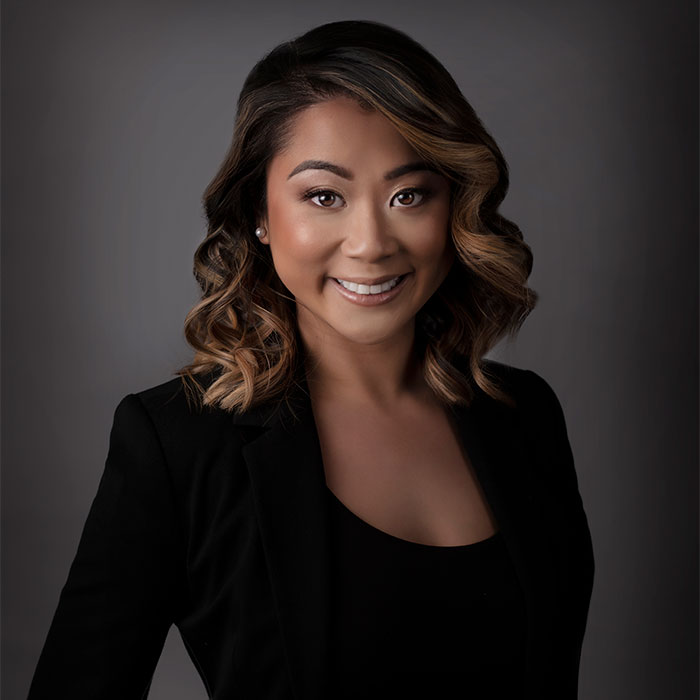
Stacey Diane Arañez Litam (she, her, siya), PhD, NCC, LPCC-S, CCMHC
Dr. Litam is an Assistant Professor of Counselor Education at Cleveland State University, a licensed professional clinical counselor and supervisor, and a diplomate and clinical sexologist with the American Board of Sexology. Dr. Litam is a member of the Forbes Health Advisory Board and internationally recognized for her pioneering work on the impact of COVID-19–related discrimination on the mental health and well-being of disaggregated AAPI communities and communities of color. She is an immigrant and identifies as a Chinese and Filipina American woman.
Dr. Litam is a highly sought-after keynote speaker and content expert on topics related to mental health, sexual well-being, diversity, equity, inclusion, and belonging (DEIB), as well as Asian American and Pacific Islander concerns. She has been featured in Forbes Health, National Public Radio (NPR), podcasts, news outlets, and in legislative arenas.
Dr. Litam provides clinical trainings, workshops, plenary speeches, and keynotes on a wide range of topics, including anti-Asian hate and mental health outcomes; responding to workplace discrimination; promoting mental health in the workplace; navigating intergenerational and collective trauma; challenging implicit bias; supporting colleagues with marginalized identities; and cultivating culturally responsive work environments. Dr. Litam has published over 40 academic peer-reviewed papers and book chapters and has facilitated hundreds of workshops and trainings.
Voices From the Margins: Exploring the Intersection of Race, Spirituality, and Domestic Violence Among Black Women Survivors
Over 44% of Black women experience domestic violence compared to their counterparts. This thought-provoking webinar delves into the often overlooked experiences of Black women survivors of domestic violence. Exploration of complex intersecting identities, while shedding light on the unique challenges faced by Black women in their journey to healing and empowerment, will be covered. Participants will gain a deeper understanding of the impact of systemic racism, cultural practices, and spiritual beliefs on the experiences of Black women survivors. This presentation aims to amplify the voices of those at the margins, fostering a more inclusive and supportive approach to addressing domestic violence in the Black community. Additionally, research findings from a narrative inquiry centering Black women survivors of domestic violence and implications for counselors will be highlighted.
After this presentation, participants will be able to:
- articulate research centering Black women survivors.
- discuss the impact of intersecting identities and systemic barriers for Black women survivors.
- evaluate counseling interventions and strategies to assist Black women survivors.
Presenter
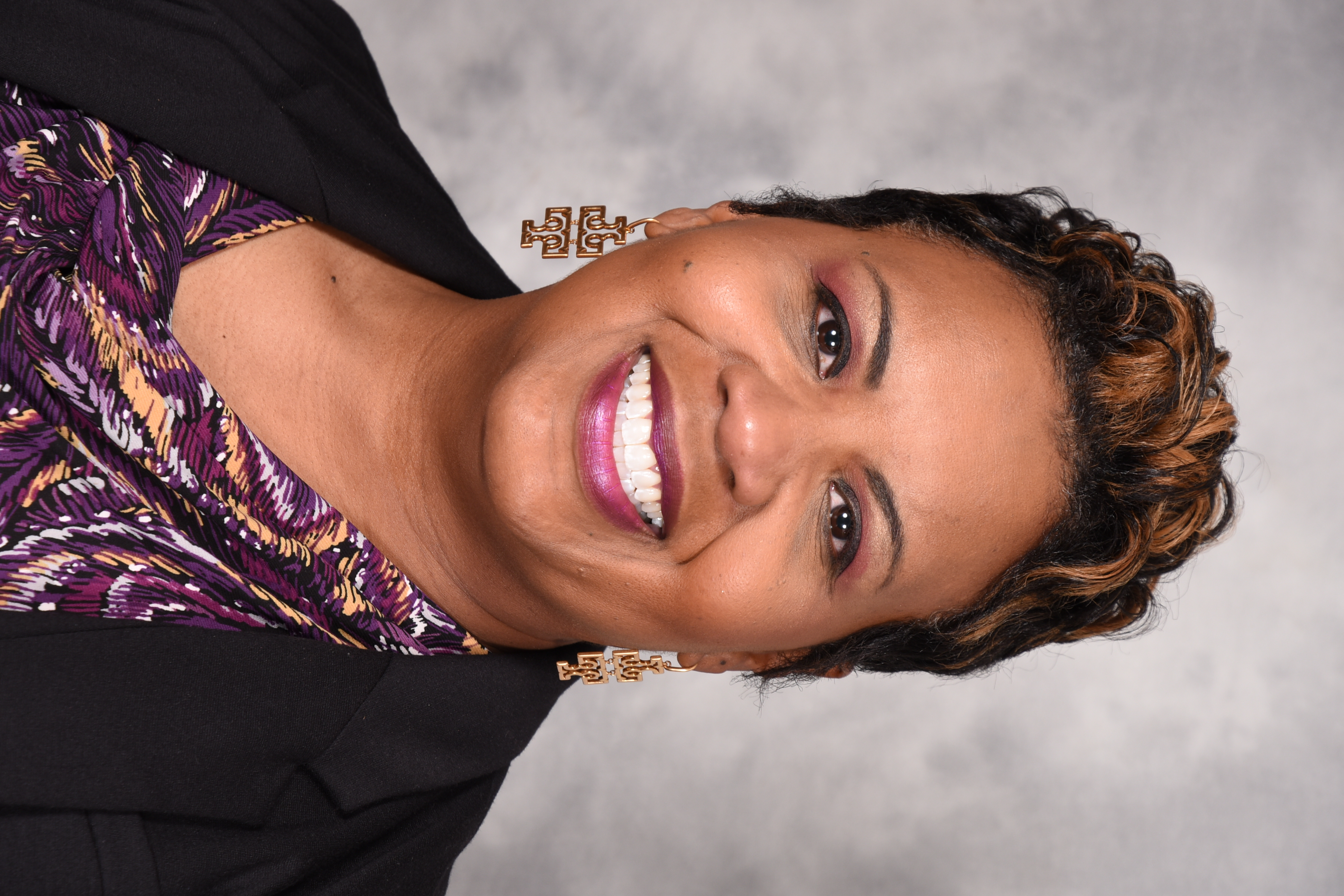
Shanita S. Brown, PhD, NCC, LCMHC
Dr. Shanita Brown is a Teaching Assistant Professor in the Counselor Education Program in the Department of Interdisciplinary Professions at East Carolina University. Dr. Brown's research interests focus on the domestic violence experience of Black women survivors, trauma-informed practices, and collegiate mental health. Dr. Brown is a Licensed Clinical Mental Health Counselor and National Certified Counselor with over 15 years of experience in the clinical mental health profession. She has served in various capacities, such as school-based mental health, college counseling, and private practice. She has presented at state, regional, and national conferences in her area of expertise and authored scholarly articles in journals such as The Professional Counselor and Journal of Mental Health Counseling. Dr. Brown is President Elect-Elect of the North Carolina Counseling Association and has served in various leadership positions on state and national levels in the counseling profession and the NC Domestic Violence Taskforce. She has been featured in various media outlets and podcasts such as Essence, Parents, and Checking In with Michelle Williams. Dr. Brown has received numerous awards, most recently, the 2021 North Carolina Counseling Association Jane E. Myers Wellness Counseling Award. Dr. Brown is a 2016 NBCC Minority Fellowship Program (MFP) Doctoral Fellow.
Call to Action! Filling the Counseling Gap for Military Service Members, Veterans, and Their Families
Clinical research on working with the military populations has found pervasive mental health issues existing in this community. Military populations are seeing record numbers of homelessness and suicide. According to research, roughly half of veterans reported receiving care, both medical and mental health, within their requested time frame. This means the other half must wait extended lengths of time to receive the services they need and deserve. These significant wait times for care can be detrimental to the health and well-being of these clients. Asking for help in the form of mental health services already has a stigma in the military community. The issues with these extended wait times for care can further exacerbate mental health concerns.
Many practitioners have not been trained in counseling the military population. This presentation will address this topic, educate practitioners in the mental health field, and spread the message of the increased advocacy needed to support this population of individuals.
Additionally, this presentation will support providers with the tools needed to feel comfortable when working with the military population and their families. Speakers will provide information on acquiring the four domains of clinical competencies needed to effectively serve this unique population: attitudes and beliefs, knowledge, skills, and action. Participants will gain the necessary knowledge to help lessen the wait times associated with receiving mental health services for this population, while also receiving the benefit of increasing caseloads and referrals.
After this presentation, participants will be able to:
- discuss the recent spotlight on military and veteran populations and understand the most prevalent concerns faced by this community.
- recognize and address the stigma associated with seeking mental health services and how to combat this issue.
- develop tangible strategies to most effectively support the military and veteran populations.
- learn how to become an advocate and ally for the military and veteran populations.
- learn how to panel with military and veteran insurance and navigate the system to increase their referral base.
Presenter

Pamela Fullerton, PhD, NCC
Dr. Pamela Fullerton is the Founder and Clinical Director of Advocacy & Education Consulting, a counseling and consulting organization dedicated to ensuring social justice and advocacy through access to mental health and well-being services. She is a Latina bilingual Certified Clinical Trauma Professional (CCTP), a Certified Dialectical Behavior Therapy professional (C-DBT), a Certified Clinical Anxiety Treatment Professional (CCATP), and a clinical supervisor and consultant. Dr. Fullerton is also a professional writer, national speaker, and workshop facilitator. She specializes in working with BIPOC communities, undocumented communities, immigration and acculturation, trauma, anxiety, life transitions, and career counseling. She is an adjunct instructor in the counselor education department at Northeastern Illinois University and runs a nonprofit to support Latinx youth in the Chicagoland area.
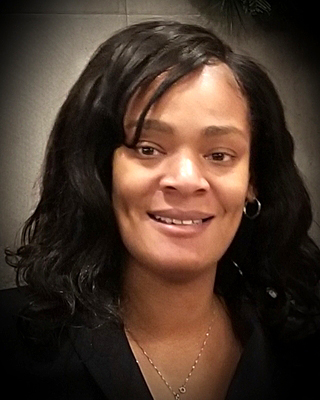
Glenisha Foreman, MA, NCC, LCPC, CCTP, CTMH
Glenisha Foreman is a Licensed Clinical Professional Counselor (LCPC), Marine Corps veteran, and CEO and Clinical Director of Verdure Counseling, a counseling organization focused on bringing growth and wellness to their clients. After completing active-duty military service, she obtained a Master of Arts in clinical mental health counseling from Concordia University. Serving in the military enabled her to travel to various places around the world, providing her with rich multicultural experiences that formed the foundation of her culturally affirming practices. Foreman is a Certified Clinical Trauma Professional with experience working with both mental health and substance abuse issues and is trained in eye movement desensitization and reprocessing (EMDR) therapy. Foreman is an adjunct instructor at Northeastern Illinois University and is currently completing her PhD in counselor education and supervision at Governors State University, with her dissertation and research focusing on the experience of female Marines as they transition back to the civilian world.
“I’m Free, These Chains Are No Longer Holding Me”: The Natural Recovery Experiences of African American Women
There are many pathways to achieving recovery from illicit substance use, and the most common pathway involves the use of substance use treatment. Research indicates that African American women have lower rates of treatment retention. This can be attributed to the fact that many African American women have unique risk factors that they encounter. Examples include environmental oppression, barriers to treatment, and a history of trauma. Given the complexity of the problem of substance use, what happens when African American women receive substance use treatment that is unsuccessful? This presentation will explore how African American women were able to achieve sustained long-term recovery from substance use by relying on culturally prescribed pathways to recovery that include the Black church, family, religion, and spirituality.
After this presentation, participants will be able to:
- Examine the lived experiences of African American women in long-term recovery from substance use for 5 or more years.
- Understand how forms of recovery capital such as spirituality, religion, the Black church, family, and social support aid in the long-term recovery maintenance from substance misuse.
- Identify approaches to collaborating with community stakeholders, such as the Black church, to help develop community-based partnerships for individuals dealing with substance use–related disorders.
- Discuss strategies to incorporate spirituality and religion in the counseling session.
Presenter
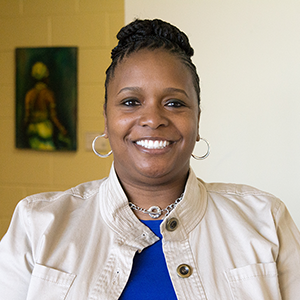
Taheera Blount, PhD, NCC, LCMHC
Dr. Taheera Blount is an Assistant Professor of Counselor Education at North Carolina Central University. She earned her PhD in counselor education and supervision from North Carolina State University. She was the recipient of the 2015 National Board for Certified Counselors Minority Fellowship for her research interest related to the use of spirituality in overcoming substance use–related disorders.
In 2023, Dr. Blount was selected as a Leading Emerging and Diverse Scientists to Success Fellow through the University of Pittsburgh. Before transitioning into higher education, Dr. Blount worked as a community-based therapist with children and adults with mental health and substance use disorders. In addition, Dr. Blount worked as a Professional School Counselor for 5 years with Durham Public Schools.
Dr. Blount’s research interests include the following: the use of spirituality and religion to assist African American women with overcoming mental health and substance use–related challenges, school-based mental health counseling, and career and college readiness among urban youth.
Dr. Blount has presented at local, state, and national conferences. Her work has been featured in Counseling and Values, the Journal of Creativity in Mental Health, and the Journal of School Counseling. In addition, Dr. Blount was featured on the Better Together podcast with the National Free Will Baptist Association.
Dr. Blount serves on the editorial boards for Counseling and Values, Professional School Counseling, and the Journal of Mental Health Counseling.
Mindfulness to Promote Wellness and Coping Among Immigrant Children and Adolescents
In many instances, immigrant parents bring their children to the United States at an age when decision-making is limited. Children acculturate to their new society through the socialization process. However, language barriers and cultural factors limit their socialization and academic well-being. The change in cultures, language, and environment; economic hardships; and lack of support and resources cause immigrant children to experience mental health challenges. These can include depression and anxiety, where they may feel isolated and worry about their lives in the United States. The most common mental health issues experienced by immigrants include depression, anxiety, trauma, and substance abuse. Immigrant children may also experience discrimination and marginalization from educational policies and work communities.
Mindfulness with children leads to enhanced cognitive and social skills along with increased emotional regulation and executive functioning. Mindfulness involves focusing on present thoughts, feelings, and actions to heighten awareness and consciousness while integrating the mind, body, and spirit for overall well-being. Practiced alone or during activities, mindfulness aids in managing stress and anxiety. Regular mindfulness practice fosters self-awareness, helping individuals process thoughts and emotions as they arise.
After this presentation, participants will be able to:
- Review children’s developmental needs and understand the mental health challenges faced by immigrant children living in the United States.
- Learn about the concept of mindfulness and identify some examples.
- Apply mindfulness practices in working with immigrant children facing mental health challenges.
Presenter
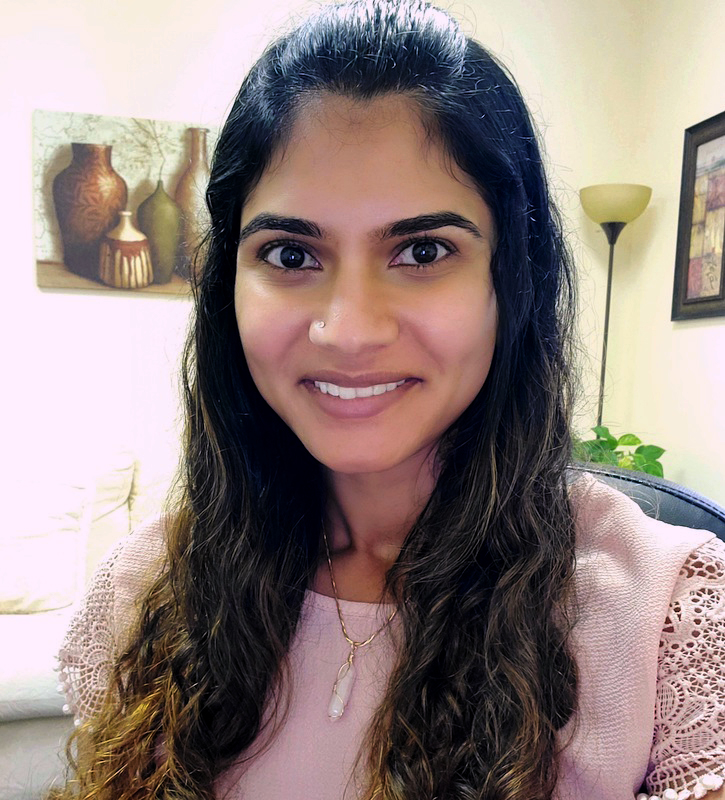
Shama Panjwani, PhD, NCC, BC-TMH, CCMHC, ACS, LPC
Dr. Shama Panjwani has a private practice, SoHolisticEnergy Counseling & Consultation, where she provides clinical services to clients and supervisees. She also offers consulting services to businesses and organizations on DEI and wellness. She is currently a faculty member in the Clinical Mental Health Counseling Department at Keiser University.
Dr. Shama holds a PhD in counselor education and supervision from Mercer University, specializing in cross-cultural psychology and organizational leadership. She is a National Certified Counselor, a Certified Clinical Mental Health Counselor, a Licensed Professional Counselor, and an Approved Clinical Supervisor.
Her research presentations and publications focus on various topics, including reducing mental health stigma, immigration, acculturation, trauma, social justice, and advocacy, fostering cultural humility and sensitivity in counseling and supervision, multiculturalism and diversity, crisis counseling, integration of psychedelics in treatment, and approaches aimed at increasing cross-cultural awareness and leadership skills within academia and institutions. She also emphasizes mindfulness meditation and holistic wellness integration in her work with underserved and marginalized populations. With over 8 years of experience in the mental health field, she has worked in crisis, inpatient, emergency room, outpatient, substance abuse, case management, and private practice settings. Dr. Shama actively conducts workshops and presentations to raise awareness about mental health–related topics.
NBCC Foundation has been approved by NBCC as an Approved Continuing Education Provider, ACEP No. 805. Programs that do not qualify for NBCC credit are clearly identified. NBCC Foundation is solely responsible for all aspects of the programs.
Each state sets its own requirements for licensure, including continuing education requirements to maintain licensure. Questions about CE requirements for state licensure should be directed to your state board. You can find their contact information on our state board directory.
